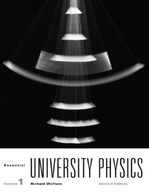Climatologists have recently recognized that black carbon (soot) from burning fossil
Chapter 17, Problem 46(choose chapter or problem)
Climatologists have recently recognized that black carbon (soot) from burning fossil fuels and biomass contributes significantly to arctic warming. Youre asked to determine whether this effect might cause ice to melt that would normally stay frozen yearround. Consider an ice layer 2.5 m thick that normally reflects 90% of the incident solar energy and absorbs the rest. Suppose black carbon darkens the ice so it now reflects only 50% of the incident solar energy. The arctic summertime solar input averages You can assume for the initial ice temperature, and an ice density of What do you conclude?
Unfortunately, we don't have that question answered yet. But you can get it answered in just 5 hours by Logging in or Becoming a subscriber.
Becoming a subscriber
Or look for another answer
